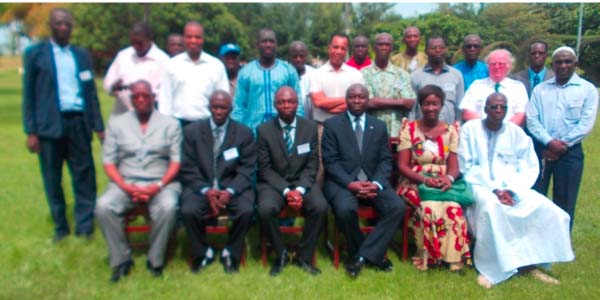
The minister, in his keynote address at an ITC Business Plan Validation workshop on Thursday at the Kairaba Beach Hotel, said: “ITC has contributed immensely towards its mission to increase livestock productivity and utilization in the West African region through the optimal and sustainable exploitation of genetic resistance traits of indigenous breeds of livestock for the welfare of human populations for about three decades now.”
The meeting was held to validate a new business plan that would transform ITC to rendering more services than it used to under a different name to be known as West Africa Livestock Innovation Centre (WALIC).
As a livestock innovation centre, WALIC’s role would change from being mainly an interpreter of livestock researchto being a catalyst, facilitator, partnerships and knowledge broker, advocate for more enabling policies and institutions, and resource mobilizer and coordinator.
After good reflections and taking into consideration changes in the livestock sector at regional, continental and international levels, Minister Owens noted, it was deemed fitting to revisit ITC’s medium and long-term strategies and plans and align them with current realities and ongoing regional and sub-regional initiatives.
To realize this new line of direction, a broad representation of essential stakeholders participated in the development and finalization of a new 10-year strategy plan (2013 – 2022) for ITC in the last two years.
The new strategy plan called for a name change from ITC to WALIC, with a renewed vision, mission, programmatic areas and very inclusive governing culture, said Minister Owens.
He expatiated: “WALIC’s mandate would cover the whole West Africa sub-region, co-owned and managed by ECOWAS Member States, and would have very strong linkages with CORAF/WECARD and the ECOWAS Commission.
“Therefore, for me personally, this Business plan … is significant because with the new name and strategy we will be managing the institution in a Business Unusual mode.”
WALIC is expected to contribute towards addressing development bottlenecks that are well identified in both the continental Comprehensive African Agricultural Development Programme (CAADP) and Regional Policy for West Africa (ECOWAP).
The Agric minister stated: “WALIC would also contribute to the achievement of a number of components through well identified activities in the ECOWAP document. For example, and to mention just a few:
“Improvement of the performance of local or endemic cattle breeds, through the use of biotechnologies for breed improvement; and the setting up of regional banks for the conservation and diffusion of animal genetic resources.
“Elucidating and promoting adaptive mechanism of livestock breeds to climate variability and change as well as environmental degradation in order to develop productive systems well adapted to these changes.
“Contribution to gender empowerment through the development of balanced gender approaches to research for development.”
The implementation process of the new strategy plan is divided into three phases: short term (2013-2014), medium term (2015-2018), and long term (2019-2022).
The Minister assured of the Gambia government’s support to WALIC’s activities and development efforts at all time.
In his remarks, ITC acting-Director General Ansumana Jarju said the document outlines a ten-year (2013-2022) strategic plan for a new livestock innovation centreto serve the West African region, building on the work of the International Trypanotolerance Centre (ITC).ITC shall hereafter be referred to as the West Africa Livestock Innovation Centre (WALIC).
While building on the legacy and achievements of ITC, WALIC will have a broader regional reach and it will be recognized as a technical arm of the Economic Community of West African States (ECOWAS) Commission. This status will be reflected in the Centre’s governance structure.
WALIC will also expand its focus from concentrating mainly on indigenous breeds of cattle, sheep and goats that are naturally tolerant to tsetse-transmitted trypanosomosis. The new Centre’s mission will be to unlock sector through innovative partnerships and knowledge-based solutions that empower stakeholders along value chains.
Unlike ITC, which was a research institute, WALIC will be an innovation centre. Although research for development will be part of its mandate, WALIC’s agenda will pay substantial attention to promoting institutional change through capacity building, knowledge management, advocacy and partnership, among other

